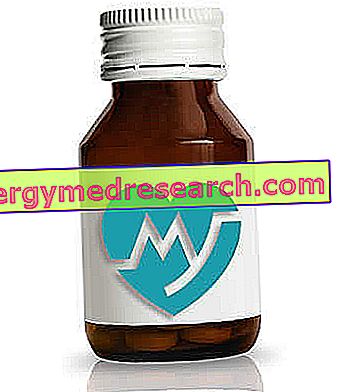Definition
Motion sickness (or motion sickness) - also known as motion sickness or travel sickness - is a neurological disorder that occurs mainly during travel on any means of transport (car, ship, plane, etc.), from which the name of the disorder.
Potentially, any person can suffer from motion sickness, but some individuals are more sensitive than others. In particular, this disorder seems to afflict women and children aged 2 to 12 the most.
Causes
Motion sickness is caused by the contrasting interpretation of signals coming from the vestibular apparatus of the inner ear (organ responsible for maintaining balance), from the eyes and from the proprioceptive system (ie, that system that allows us to recognize the position of our body in space ).
The risk factors that can favor the onset of motion sickness are fear, anxiety, migraine, annoying noises, excessive heat and poor ventilation of the means of transport in which you are.
Symptoms
The typical symptoms of motion sickness are nausea, vomiting and dizziness. In addition to these, however, other symptoms may also appear, such as cold sweating, hyperventilation, hypersalivation, pallor and drowsiness. In some individuals, migraine, fatigue and weakness, confusion and a sense of fainting may also occur.
Information on motion sickness - drugs and treatment of movement sickness is not intended to replace the direct relationship between health professional and patient. Always consult your doctor and / or specialist before taking motion sickness and medication.
drugs
In the milder forms of motion sickness the use of pharmacological treatments can be avoided through simple precautions, such as being distracted or fixing a fixed point during the journey, avoiding large meals both before and during the trip and avoiding the consumption of alcoholic beverages.
In the most severe cases of motion sickness, on the other hand, the use of drugs may be necessary.
Generally, to prevent and control the symptoms of the disorder, antimuscarinics (useful for the prevention of nausea and vomiting) and antihistamines (useful for the prevention and control of both dizziness and nausea and vomiting) are used.

antimuscarinics
The antimuscarinic drug par excellence used in the treatment of nausea and vomiting caused by motion sickness is scopolamine (Transcop ®). For the treatment of this disorder, scopolamine is available as a medicated plaster that must be applied behind the ear at least two hours before starting the journey. However, if necessary, the patch can also be applied if the vomit has already occurred.
Antihistamines
Normally, antihistamine drugs are used for the treatment of allergies, but some active ingredients belonging to this class can be used for the prevention and control of the symptoms induced by motion sickness, such as nausea, vomiting and dizziness.
- Dimenhydrinate (Xamamina ®, Travelgum ®): dimenhydrinate is administered mainly orally, in the form of tablets, capsules or chewing gum, but is also available for rectal administration in the form of suppositories. It is mainly used to prevent the onset of nausea and vomiting.
When administered orally, the dose of dimenhydrinate usually used in adults is 25-50 mg of drug, to be taken half an hour before the start of the journey, or at the first symptoms of nausea. If necessary, the administration can be repeated after 3-4 hours.
- Cinnarizine (Toliman ®, Cynazin ®, Stugeron ®): cinnarizine is used for the treatment of balance disorders including dizziness, nausea and vomiting. It is available for oral administration and the dose of medication usually used in adults is 24 mg, to be taken half an hour before starting the journey. Administration - if necessary - can be repeated after 6 hours.
Furthermore, cinnarizine is also available in pharmaceutical formulations in combination with dimenhydrinate (Arlevertan ®).



